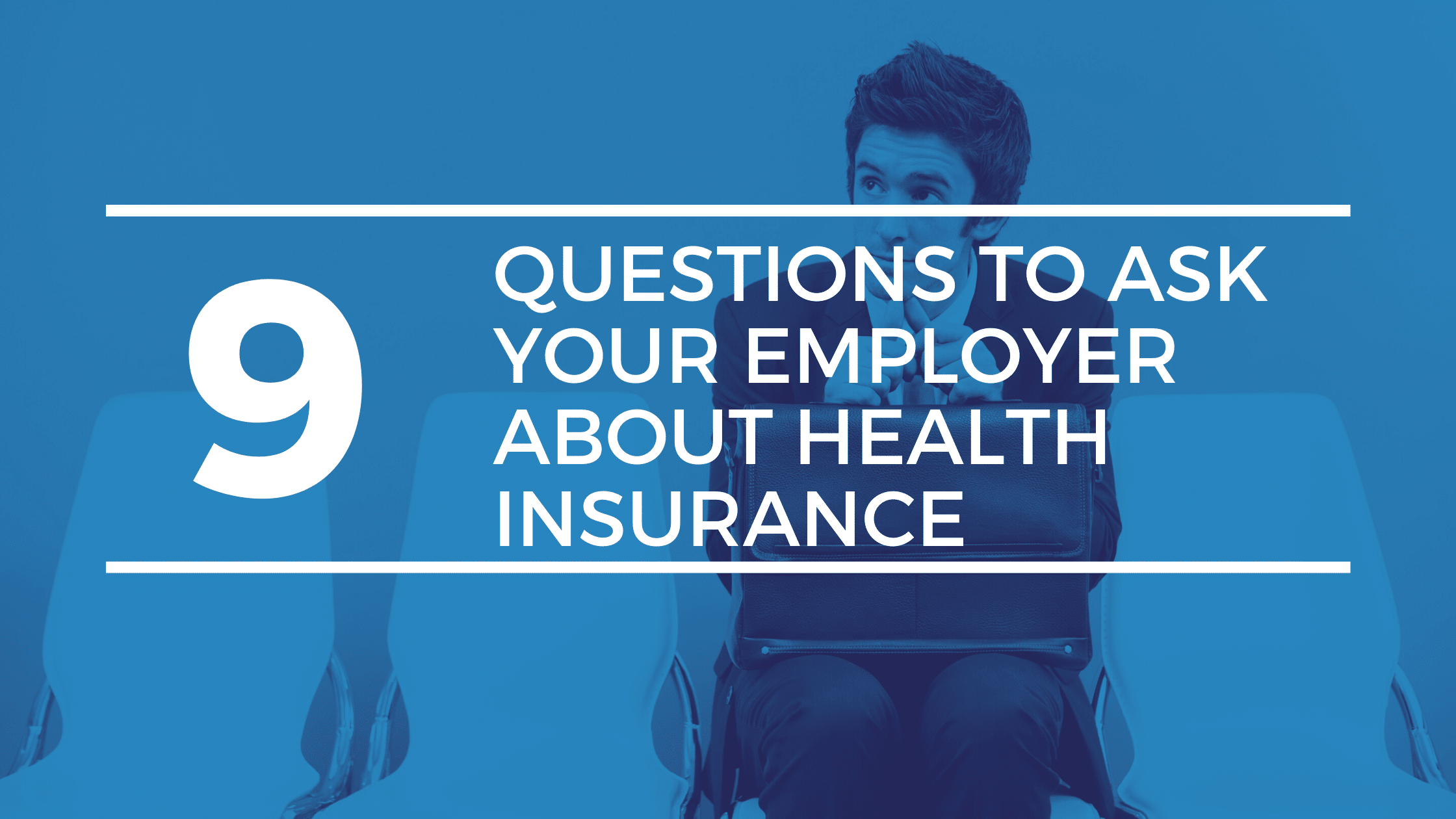When you start a new job, choosing whether or not to opt into your employer’s health insurance plan is one of the many decisions you’ll make. While smaller companies may offer just one choice, larger employers often give new hires multiple options. It’s important to spend some time figuring out which plan is the right match for you and your family.
Most organizations have an individual who manages employee health benefits. That person is typically within the human resource department and will provide an overview of health benefits during your job orientation period. It’s not uncommon to feel overwhelmed by all of the info that they throw at you.
Here are 9 key health insurance questions to ask an employer before making a final health plan choice:
When does my healthcare coverage begin?
Don’t cancel your current health insurance policy yet! While some employers may offer you a health plan on Day 1 on the job, others may require a “waiting period” before health coverage launches — usually it’s anywhere from a month to 90 days.
Will there be a cost to me or does my new employer cover 100% of my health insurance premium?
Pay close attention here. The answer varies from employer plan to employer plan. One Forbes article cites research showing that the average US employer pays up to 56% of the typical 4-person family’s health plan. Most employers deduct your portion automatically from your paycheck each pay period.
Will your current doctors/healthcare providers accept your new insurance?
If you already have a primary care physician or healthcare provider who you want to continue seeing — this includes your kids’ pediatrician, the family dentist, mental health counselors, and an endocrinologist, cardiologist, OB-GYN and other specialists you regularly see — you can ask their office directly or go online to find out if your new health plan includes their services.
Should you ask about benefits specific to a chronic health condition that you or a family member has?
This is a Q best answered by your doctor…
Many people have chronic conditions that require regular appointments and prescription medications — such as diabetes, high blood pressure and depression. Your physician/healthcare provider, and/or one of their staff members who focuses on insurance coverage, can help you figure out what might change if you opt for a new plan.
Does the new plan offer coverage for children, out-of-state children in college, and illness that occurs when you or a family member are traveling?
According to the U.S. Department of Health and Human Services, if your plan covers children, you can add or keep your kids on your healthcare policy until they turn 26. They are eligible even if they’re off at college in another state, married, or living separately from you.
If you travel often for work, it is imperative that you ask about coverage for any care you might need while on the road in the US or internationally. For example, an appendicitis attack while on travel could turn into massive debt if it’s not covered by your company’s health plan including costs of an ambulance ride, an ER visit, and an emergency surgery and hospital stay.
What services are fully covered under my new health plan?
Under the “Affordable Care Act” of 2010, health plans in the US are required to cover certain “essential health benefits,” according to Stanford University. These benefits include standard immunizations for children, regular physical exams, certain medications, and more. Learn more about what the Affordable Care Act says about essential benefits here.
Does the company offer other types of health-related insurance and perks beyond basic health coverage and free preventive care?
Dental and vision plans are usually part of a new hire’s package, too. Ask for details and if you have kids who’ll need braces and wisdom teeth removed, for example, inquire about orthodontia services and oral surgery coverage. Also ask about life insurance and longterm care insurance options, as well, and weigh the pros and cons. It’s never too early to start learning and planning.
Beyond formal health plans, your company may offer financial or other perks to those who use “green” commuting methods as well as employees who participate in on-site free wellness classes, weight loss and smoking cessation support groups, and company-wide health competitions that motivate people to walk more and eat healthier. They may also give gym membership discounts.
Does your workplace provide HSAs, HRAs or FSAs?
Health Savings Accounts (HSAs), Health Reimbursement Accounts (HRAs), and Flexible Spending Accounts (FSAs) can help you save money. Read up or ask about them, too.
Unstable economic times can lead to layoffs. What happens to employee health insurance coverage if layoffs occur?
A layoff can be a shocking and emotional experience, and if you lose your job-based health insurance it’s critical to know your options. Ask how your new employer manages the transition to a COBRA health plan.
A final word about employee health insurance
If the topic of health insurance hasn’t cropped up with your soon-to-be workplace, you might have one last question: Do employers have to offer health insurance? According to HealthCare.gov, small businesses with less than 50 employees are not required by law to offer health coverage. Businesses with 50 or more employees typically offer a health plan or plans to employees and their dependents or they face penalties under the Affordable Care Act.
For additional questions about health insurance and how to navigate your choices, visit HealthCare.gov’s “Common Coverage Questions” page.
